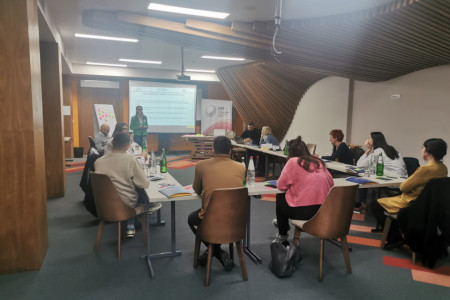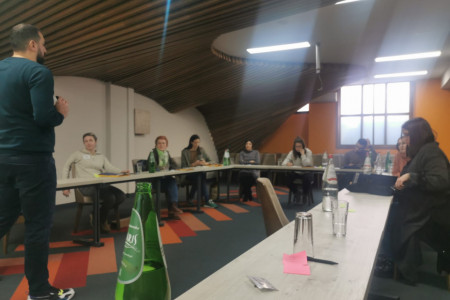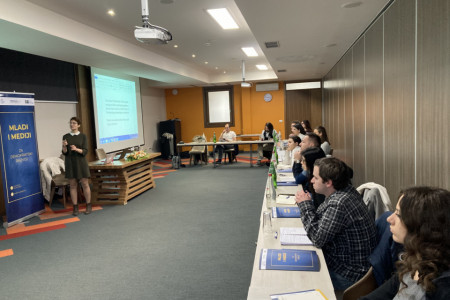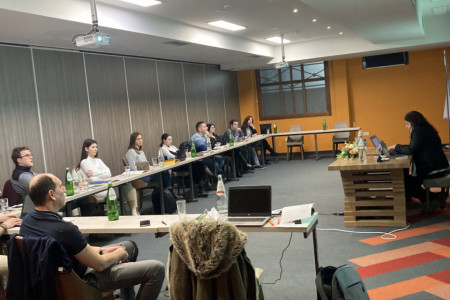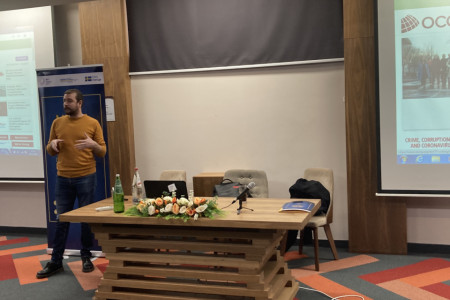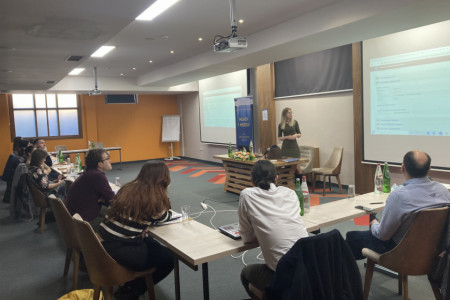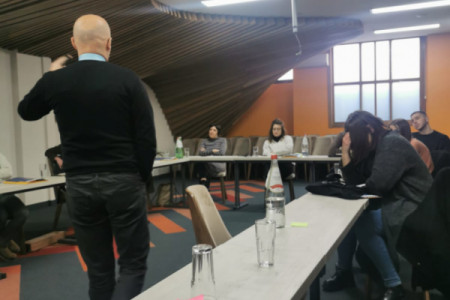Civil society has a key role in enabling social change in a society, whereas the media outlets have to professionally report on different subjects. But how – with which tools, instruments and knowledge, youth CSOs and media outlets can adequately achieve that in the current context of Serbia?
Partnerships and advocacy as a key ingredients of social change for youth on the local level
Nowadays, civil society has a key role in enabling social change – by insisting on adequate law enforcement, calling for accountability of the authorities, initiating the adoption of new laws and presenting current problems and challenges that citizens face. Change has to be carried out through the process of advocacy, one of the basic tools of CSOs – by enabling institutional change based on participation of many stakeholders in the decision-making processes.
Taking into account that the current context of Serbia is quite unfavorable for CSOs, one potential solution to facilitate the advocacy process is to establish strong partnerships. Even though there are many examples of successful individual campaigns, the complexity of current challenges seems to require a wider network of support. Unfortunately, it is more probable that available resources of one organization or one sector nowadays (whether it be public, private and civil) will not be enough to overcome challenges that society nowadays face. Each of the sectors can offer different capacities and competencies. Hence, the more parties involved and interested (public, private and civil sector), the more likely and faster the goal of advocacy will be achieved.
Apart from partnerships, there are other ways to initiate and insist on social change – yet again, by involving more actors and stakeholders. As the community’s interest is the primal focus, public policies are the main concept that has to be understood. Firstly, it has to be clear how public policies are defined, adopted and influenced on, and secondly, it has to be clear how can they mobilize the community. Simply put, public policy is everything that the public authority decides to do or not to do – hence, it is the result of the interaction of those parties who want some decisions to be made, those who make those decisions and those to whom the decisions are made upon. In order to know how to influence decisions, we have to understand what our role is and where we are in this network of public policies and, last but not least, what power do we possess. As members of the community are those who are mostly influenced by the decisions, we have to empower them to become active citizens and get involved in the decision-making process. By setting clear goals, understanding the community and its needs, as well as keeping awareness of the unpredictability of the process we are on the good path in achieving that.
Young people are a very important part of every community, the part that has the greatest potential to make a change. Their energy can be a key resource for improving the lives of all members of the community. Therefore, it is important that young people are being introduced to available local resources that can be used in that process - the legal framework defining youth participation, the subjects of youth policy starting from the local level, the competent institutions that they can contact. Moreover, it is necessary for them to be aware of their role and how much they are allowed to participate in decision-making processes nowadays (the tool for that is the Hart’s Ladder of Participation). Unfortunately, the environment in which we live is not incentive or enabling enough neither for the civil society, nor for the youth. For that reason, it is inevitable to fight for the improvement of youth’s position on the institutional level by insisting on reforming the instruments of youth policy. Although it seems hard, it is not impossible. It’s worth mentioning just a few examples of good case practices regarding this issue - young people in Becej who are following budget funds’ spendings today, young people in Kursumlija who managed to enable a space for young people, their peers in Cicevac who managed to form a local Youth Council, and many others.
Security of journalists, research and data collection techniques
When it comes to the media situation in the country, it is no less unfavorable and challenging than the one prior mentioned. The area of research and data collection, as well as the security of the working environment – has been identified as a significant, yet insufficiently developed elements in the work of media outlets in Serbia nowadays. These challenges especially intensify in the context of young journalists, at the beginning of their careers.
Every professional journalist has to be introduced to the Media law and insist on its enforcement in one’s daily work. First of all, it is extremely important to insist on free access to the information of public importance, given that journalists represent an intermediary between society and reality. For that reason, a journalist is obliged to point out non-transparently presented and publicly hidden information and therefore enable citizens to be informed directly or indirectly influencing their daily lives. In addition, the fact checking process needs to become an integral part of their daily work as well. On the other hand to ensure quality and credibility of their own work, in order to maintain credibility of the journalists’ community as a whole, given the fact that it is seriously deteriorated by infodemia, fake news, and content sensationalization of certain media outlets.
In addition to working on obtaining information of public importance and fact checking skills, the knowledge of research and data collection techniques on the Internet is a necessary element in almost every journalistic project. Therefore, knowing and using tools to effectively search for information is a necessary step in creating a credible journalistic story. Finally, the importance of raising awareness of journalists regarding their safety should be mentioned, especially if they investigate and report on sensitive topics. Installing adequate software, online tools and extensions are an indispensable part of safe work, which is mostly digital. The safety issue is one of the highest importance, because without a reliable and safe environment the journalist won’t be able to implement any of the above-mentioned activities.

Talking about these challenging issues for the youth CSOs and media outlets in Serbia today, but also presenting adequate information and tools for their future work, we conducted two cohort-based trainings in order to strengthen the capacities of programme partners in the first project cycle of the Programme "Media and Youth for Democratic Development". During the two-day trainings, a total of 20 representatives of partner organizations adopted the necessary knowledge and skills that will help them to successfully work on the same mission of further democratic development of Serbian society.
The trainings were organized by Belgrade Open School with the support of the Kingdom of Sweden as part of the Programme "Media and Youth for Democratic Development". They were held in Vrnjacka Banja from 22nd to 23d of December, 2021 and have gathered representatives of partner organizations – youth CSOs and media outlets.

